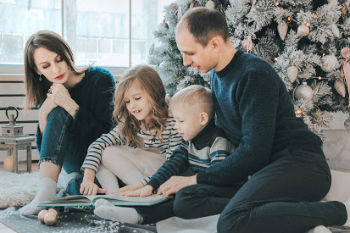
Many couples in the UK fear that if they divorce or separate, their children will suffer. For this reason, 7.6 million couples in the UK are believed to be staying together, purely for their children. While it may seem like the parents are helping their children by staying together, this may not be true. Below we explore why staying together for the benefit of a child may do more harm than good.
The Relationship Still May Not Last
Even if a couple decides to stay together for the benefit of their child, it is unlikely that they will keep to this decision for the long-term. According to Direct Line’s study, UK parents stay together for an average 5 years and 5 months longer than they would if they didn’t have children. While 5 years may still seem like a long time, they are only delaying the separation process, not eliminating it altogether. For this reason, it is arguably better to separate and organise child custody arrangements rather than delaying the inevitable.
Your Child May Be Exposed To Harm
36% of parents claim they stayed together because they believed it would be better for their children to have two parents at home. However, adults who are in abusive relationships, either emotionally or physically, actually put their children at greater potential risk by staying with their partner. Even if a child does not experience the abuse, they may still witness it – which can have a great impact on their mental well-being. Divorce or separation can, therefore, be a much safer option for a child if the relationship is toxic or abusive.
It May Impact Your Child’s Mental Health
As much as parents try to shield their unhappiness from their children, children are very perceptive and can pick up on their parent’s emotions quickly. A child will be able to detect when one or both of their parents are unhappy, and if it is not explained to them, they may feel guilty or responsible for this unhappiness. This can have many negative side effects, such as the child becoming anxious and depressed, or acting out.
Tips For Helping Your Child Understand A Separation
If you have chosen to separate with your partner, but do not want your child to be negatively affected by the experience, the below tips may help.
Talk To Your Child Together
Sit down and explain the situation to your child with a united front. It is important you come across as being on the same team as your partner. This will ensure your child doesn’t feel compelled to pick sides.
Leave Your Partner In A Safe Financial Position
To ease the guilt of separating from your partner and potentially moving away from your child, ensure you leave the household in a good financial position and that they are looked after. Without a dual income, finances will be more stretched.
Consider Your Child’s Age
If you have children of multiple ages, it may be advisable to speak to them both separately. A teenager, for example, will have a different understanding of the situation than a toddler. It is important you keep your discussions age-appropriate, as if a young child doesn’t understand a certain question or explanation, it may cause them to become upset.
Try To Spend Time Together As A Family
If possible, try and continue to spend time together as a family. This can be done by something as simple as going for a walk together or going for a meal together. Family time will always be important and you should remember this over any disagreements you may be having with your partner.
Separating or divorcing from your partner can be an emotional and overwhelming time, especially if you have children. Staying together for the sake of your child, however, can sometimes do more harm than good. Each situation is different, of course, and you will know what the best way forward is for you. By using the above information, you can make the right choice for yourself and your family without causing too much disruption or confusion for your child.
Geoffrey Aldis is a freelance researcher focusing on topics related to family, parenting, pet ownership, and health. He finished his degree in Psychology BSc (Hons) and currently, he is on his 2nd year taking Master of Science in Evolutionary and Comparative Psychology.
Photo by Ann Danilina on Unsplash